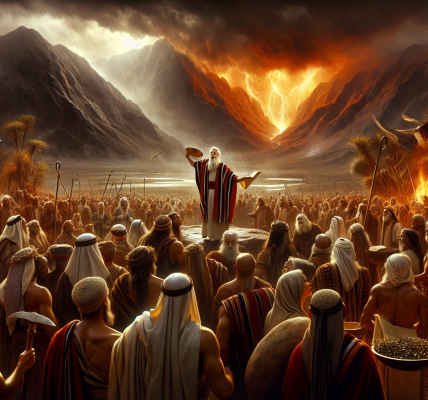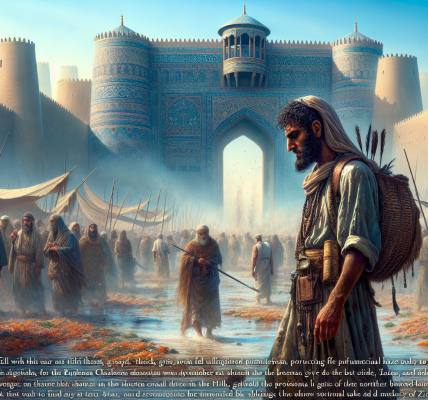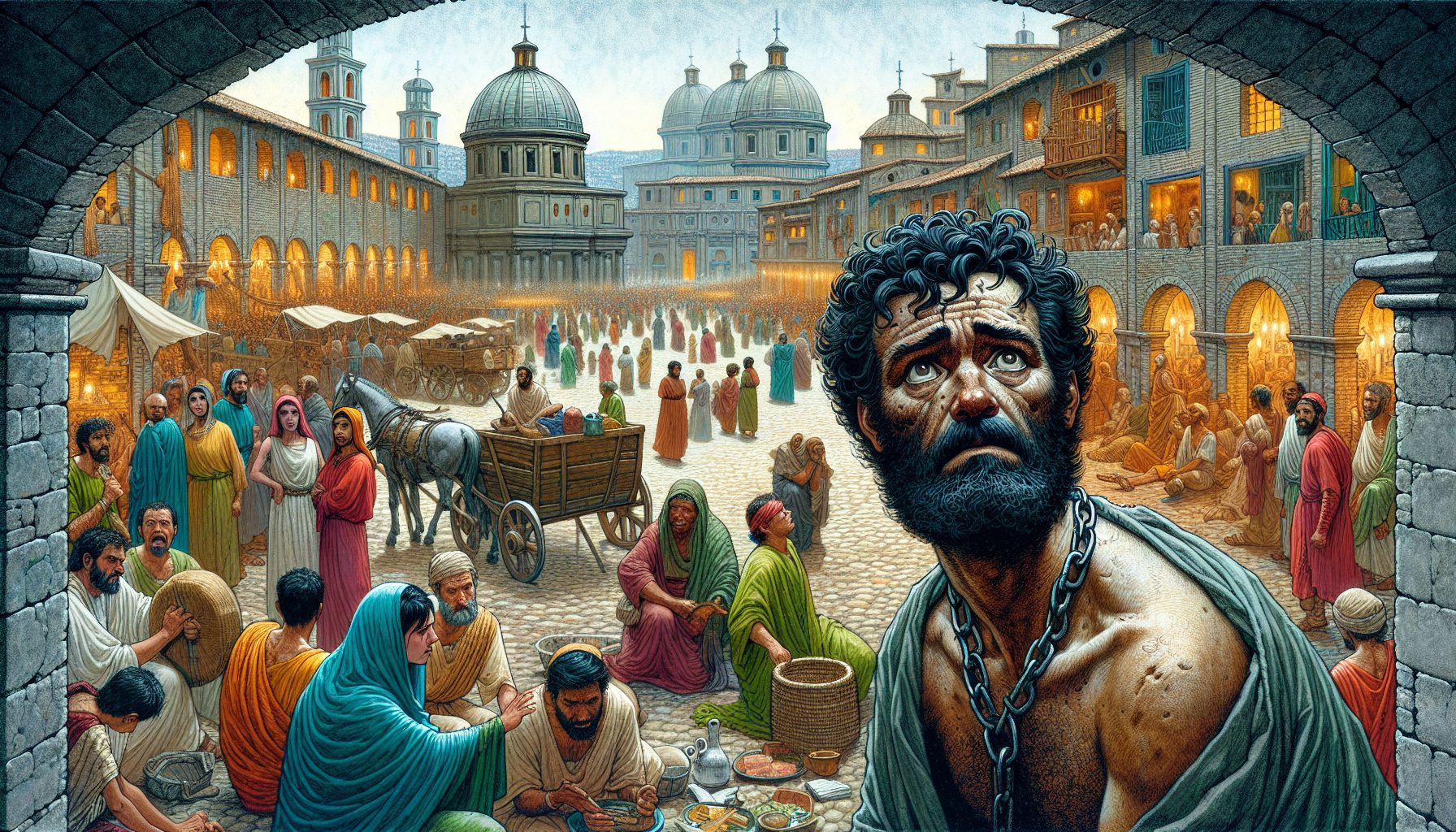**The Renewal of the Covenant: A Story of Mercy and Stone**
The morning sun had barely stretched its golden fingers over the jagged peaks of Mount Sinai when Moses rose, his bones weary yet his spirit aflame. The weight of the past days pressed upon him—the shattering of the first tablets, the terrible judgment upon the idolaters, and the pleading before the Lord for mercy. Yet, the Lord had spoken again, calling him back up the mountain, back into the presence of the Holy One.
With calloused hands, Moses hewed two new tablets of stone, matching the ones he had broken in his righteous anger when he saw Israel dancing before the golden calf. The memory of that sight still burned in his mind—how quickly they had turned from the God who split the sea! But Yahweh, in His mercy, had allowed a second chance.
Clutching the tablets, Moses ascended the mountain once more, his sandals scraping against the rock. The air grew thin, the wind whispering through the crevices like the breath of the Almighty. At the summit, the glory of the Lord descended in a thick cloud, a swirling pillar of radiance that made the very stones tremble. And then—the Voice.
Not in thunder, not in earthquake, but in a stillness that pierced deeper than any storm, Yahweh proclaimed His name before Moses:
*”The Lord, the Lord, a God merciful and gracious, slow to anger, and abounding in steadfast love and faithfulness, keeping steadfast love for thousands, forgiving iniquity and transgression and sin, but who will by no means clear the guilty, visiting the iniquity of the fathers on the children and the children’s children, to the third and the fourth generation.”*
Moses fell to his face, his forehead pressing into the dust as the holiness of the words washed over him. Here was the heart of the Almighty—justice and mercy intertwined, wrath against sin yet patience beyond measure. The very ground beneath him seemed to pulse with divine presence.
For forty days and forty nights, Moses remained on the mountain, neither eating bread nor drinking water, sustained only by the words of the Living God. The Lord inscribed the commandments anew upon the tablets, His finger etching the stone with eternal decrees. And as He spoke, He unfolded the terms of the covenant—laws of worship, justice, and devotion, reminders that Israel was to be a people set apart, holy unto Him.
When at last the time came to descend, Moses turned his face toward the camp of Israel, the two tablets heavy in his arms. But as he approached, he did not realize that his own face had been transformed. The radiance of God’s presence clung to him, his skin ablaze with an unearthly light, so fierce that the people shrank back in fear when they saw him.
From that day forward, whenever Moses spoke with the Lord, he would veil his face before the people, only removing the covering in the presence of the Almighty. It was a sign—a reminder that though God had drawn near in covenant, His holiness was not to be taken lightly.
And so Israel learned anew the fear of the Lord, the balance of mercy and majesty, as the tablets of the testimony rested among them, a witness to the God who had chosen them, disciplined them, and still called them His own.




